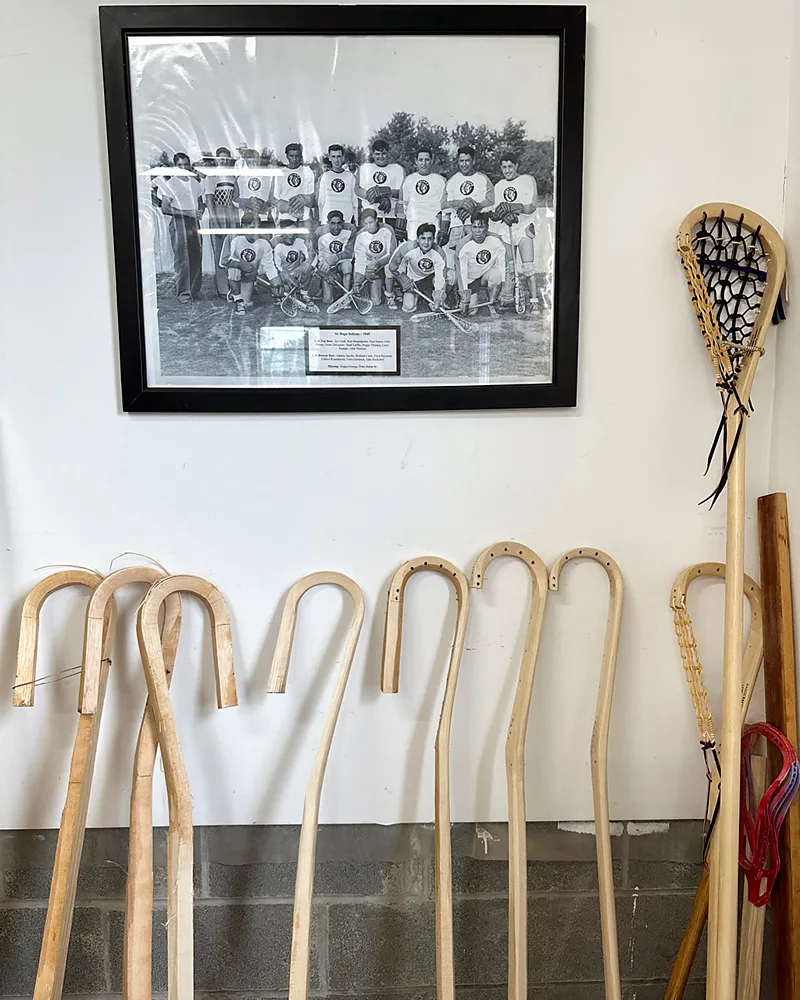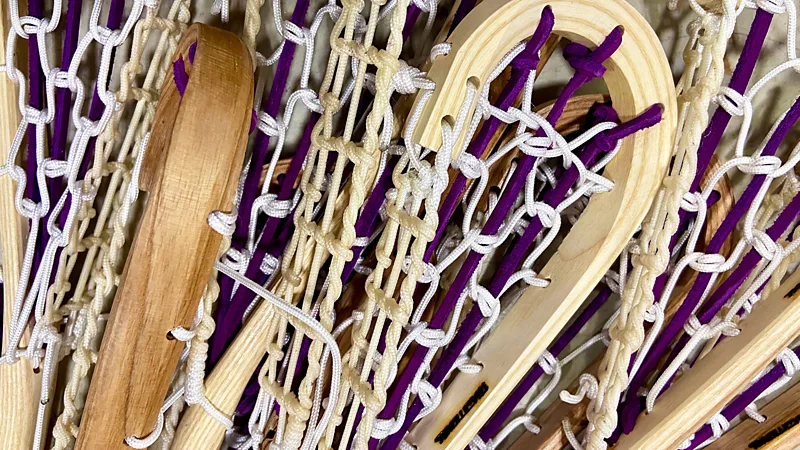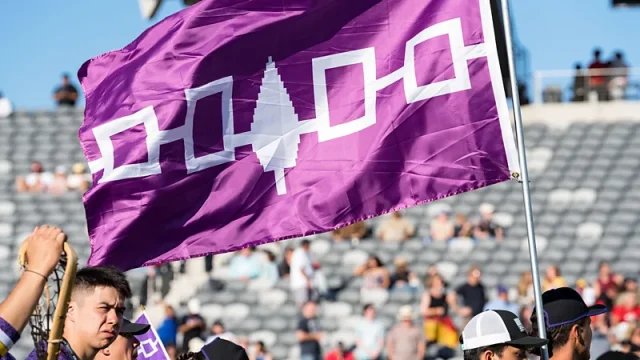Introduction
Lacrosse, one of the fastest-growing sports in North America, is making a return to the Olympics. However, the sport’s creators, the Haudenosaunee people, face uncertainty about their participation. This guide delves into the indigenous roots of lacrosse, its cultural significance, and the challenges faced by its original players in the modern sports arena.
The Origins of Lacrosse
Haudenosaunee Heritage
The Haudenosaunee, a confederacy comprising the Mohawk, Onondaga, Oneida, Cayuga, Seneca, and Tuscarora nations, are credited with inventing lacrosse over a thousand years ago. For the Haudenosaunee, lacrosse is more than a game; it is a spiritual tradition passed down through generations. Lewis Mitchell, a lacrosse stick-maker from Snye, Quebec, illustrates this by saying, “We have these little cradle sticks. Parents who want their children to play lacrosse, they put the stick into the cradle with the baby.”

Historical Significance
Lacrosse has deep roots in the Mohawk territory of Akwesasne, which spans parts of New York, Ontario, and Quebec. This area once produced the majority of the world’s wooden lacrosse sticks. Although plastic sticks became popular in the 1970s, traditional wooden sticks are still crafted for ceremonial purposes. Mitchell, along with fellow stick-maker Evan Cree, helps preserve this craft, which is integral to Akwesasne’s cultural tourism industry.

Cultural Tourism and Lacrosse
Akwesasne’s Tourism Industry
Akwesasne weaves lacrosse into its tourism narrative, offering visitors insights into the sport’s cultural, historical, and artistic significance. Tours include visits to the Akwesasne Cultural Center, where exhibits showcase the evolution of lacrosse, and demonstrations by basket maker Carrie Hill, who illustrates traditional log pounding techniques.
Growth of Indigenous Tourism
The blend of cultural tourism and sport is particularly effective, as both Indigenous tourism and lacrosse are rapidly growing. The sport received a significant boost with its inclusion in the 2028 Olympic Games in Los Angeles, where it will be played in the sixes format.
Lacrosse in the Olympics
The Return of Lacrosse
Lacrosse will be featured in the 2028 Olympics, marking its first appearance in over a century. However, it remains uncertain if the Haudenosaunee Nationals, the team representing the sport’s original players, will be allowed to compete. The Haudenosaunee Nationals, founded in 1983, are recognized by World Lacrosse but not by the International Olympic Committee (IOC) due to the lack of a National Olympic Committee and UN-recognized government.

Challenges and Support
Haudenosaunee players face a choice: compete for the US or Canada, or not at all. Despite these challenges, they have garnered support, including from President Biden, who advocates for their inclusion in the Olympics. There is a precedent for such an exception, as seen with the Refugee Olympic Team, created to promote hope and inclusion.
The Haudenosaunee Nationals
Formation and Recognition
The Haudenosaunee Nationals were formed by notable players like Oren Lyons, Richard Hill, and Wes Patterson. Despite drawing from a smaller player pool, both the men’s and women’s teams rank among the best globally, currently standing third in the men’s field rankings and eighth in the women’s.
Sovereignty and Identity
The Haudenosaunee consider themselves sovereign, traveling on their own passports and operating under original treaties predating European colonization. Rex Lyons, a former player and current board member, emphasizes that the team’s journey to Olympic inclusion is hindered by external factors beyond their control.
The Impact of a National Team
Affirmation of Identity
Having a national team has significantly bolstered Haudenosaunee identity and pride. Lewis Mitchell recalls the profound impact of seeing the Haudenosaunee flag raised alongside other nations during international competitions. This symbol of unity and identity continues to inspire pride within their communities.
Community and Tradition
Lacrosse remains a vital part of Haudenosaunee culture, played both competitively and ceremonially. Medicine games are held to uplift communities during difficult times, reflecting the sport’s deep spiritual significance. The existence of a national team has further united the Haudenosaunee, fostering a sense of who they are and their place in the world.
Future Prospects
Path to Olympic Inclusion
The Haudenosaunee Nationals are focused on strengthening their position for Olympic inclusion. Despite discouraging statements from the IOC, Rex Lyons remains optimistic that the committee will recognize the value of Haudenosaunee participation, which aligns with the Olympic ideals of diversity and inclusion.
Cultural Significance
The inclusion of the Haudenosaunee in the Olympics would not only honor the sport’s origins but also celebrate their mantra of “peace, friendship, and healing through sport.” Lyons envisions a powerful moment during the Olympic opening ceremony, with the Haudenosaunee team entering in full regalia, uplifting the human spirit through their cultural expressions.
Conclusion
Lacrosse, deeply rooted in Haudenosaunee culture, is more than just a sport; it is a symbol of identity, tradition, and unity. As the sport prepares for its Olympic return, the inclusion of its original creators, the Haudenosaunee Nationals, remains a vital and hopeful prospect. Their journey reflects broader themes of recognition, sovereignty, and the enduring spirit of a people who have shaped the game for over a millennium. The 2028 Olympics present an opportunity to honor this legacy and celebrate the rich cultural heritage of lacrosse.











